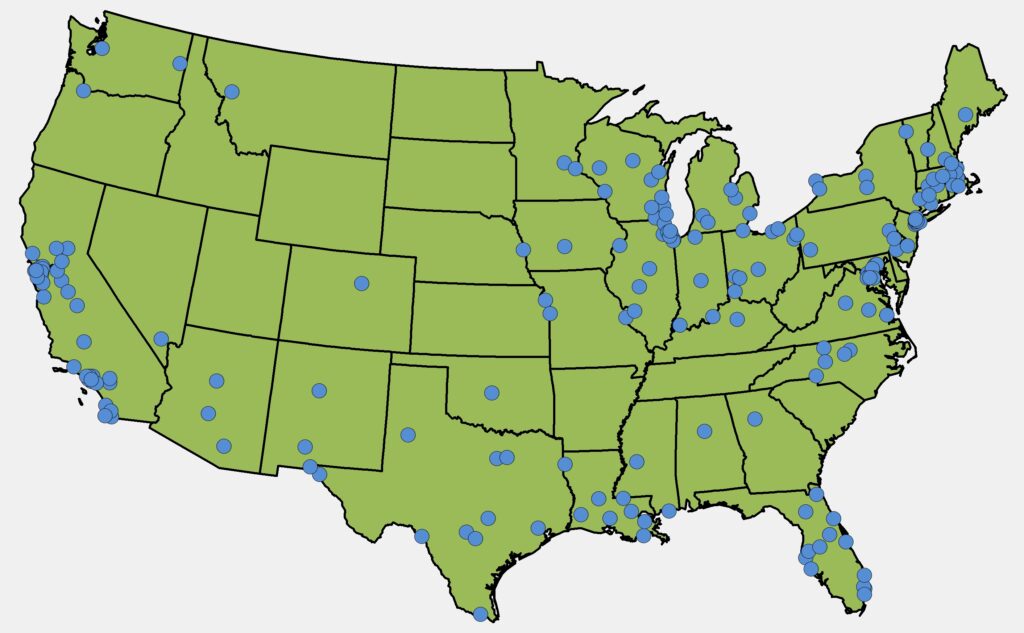To examine how social diversity influences organizational performance, I conducted the National Study of Community Organizing (NSCO). The organizations in this study provide an efficient sample from which to analyze the diversity-performance relationship. They exist throughout the country in communities that vary on several dimensions including their racial, socioeconomic, and religious composition. Although the organizations are located in different community contexts, they share a similar organizational form. Each organization recruits a broad array of community institutions to become dues-paying members. The types of members include congregations, neighborhood associations, schools, unions, and immigrant associations. Each organization has a board of directors comprised of representatives from its member organizations and they meet together on a regular basis. These commonalities allow analyses to hold the organizations’ form relatively constant, while varying their community context, social composition, member interactions, and organizational outcomes.
The sampling frame for the NSCO included every community organizing organization in the U.S. that has an office address, at least one paid employee, and institutional members (note: the sampling frame did not include community organizing organizations that have only individual members). Based on these criteria, the study identified 189 active organizations by using databases from every national and regional community organizing network (e.g., Industrial Areas Foundation, PICO National Network, National People’s Action, Gamaliel Foundation, and Direct Action Research Training), databases from fourteen foundations that fund community organizing, and archived IRS 990 Forms.
I surveyed the entire field of these organizations by distributing a two-part survey to the director of every organization. Part one was an online survey that gathered extensive data on each organization’s history, finances, collaborators, and activities. Part two consisted of customized spreadsheets that directors used to provide detailed demographic information about their institutional members and board members. After directors submitted their responses, they were re-contacted and asked to fill in missing data and clarify discrepancies. When directors completed their participation in the study, they received a payment that ranged between $25 and $100 depending on the size of their organization.
This census study achieved a response rate of 94 percent—gathering data on 178 of the 189 organizations in the country and demographic information on the 4,145 member institutions and 2,939 board members affiliated with these organizations. Each organization has, on average, 25 institutional members and 15 board members. To measure diversity, the data include the predominant race and religious affiliation of each member institution, and the race, age, income, education, occupation, religion, and gender of each board member. This project also incorporates data from the U.S. Census and the Religious Congregations and Membership Study to calculate the racial, socioeconomic, and religious diversity of the communities in which the organizations reside. To measure interaction, the data include information on the annual number of board meetings, members’ attendance record, and members’ level of involvement in the organization’s most recent event.

